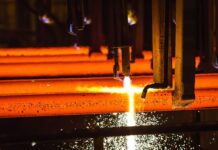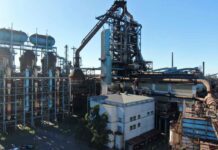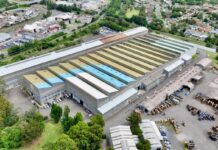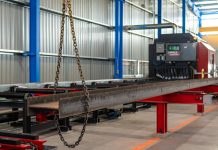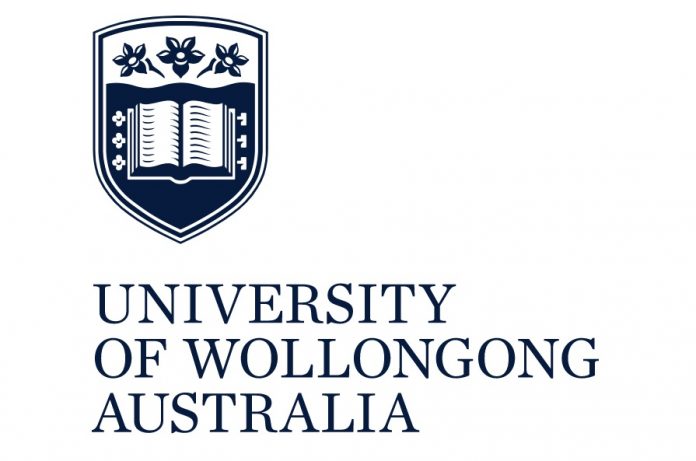
Media Release By University Of Wollongong
The University of Wollongong (UOW) has entered into a partnership with Australian steel producer BlueScope Steel and Future Fuels Cooperative Research Centre, to explore potential pathways to decarbonise the steelmaking process at Port Kembla Steel Works.
The 13-month project with BlueScope, which has received $924,784 funding from the Australian Renewable Energy Agency (ARENA), will investigate the technical and economic feasibility of a number of decarbonisation options for the plant while ensuring it remains globally competitive and resilient in a global steel marketplace. The project budget of $1.8m, includes BlueScope’s direct funding, as well as in-kind contributions from each partner.
The University’s vision to deliver potential low-carbon fuels solutions, including through its ARC Steel Research Hub, complements the Federal Government’s Low Emissions Technology Statement that ensures Australia’s Long-Term Emissions Reduction Plan and supports achieving net zero emissions by 2050.
UOW Steel Research Hub Director Dr Paul Zulli said the project would assist in the implementation of technologies that minimise energy consumption and greenhouse gas emissions in BlueScope’s Port Kembla steelmaking operations.
“This exciting collaborative project with BlueScope and the Future Fuels CRC is a unique opportunity to support this vision, through research involving site-specific evaluations of all potential emission reduction opportunities at Port Kembla Steel Works, and pilot-scale test work of biochar pneumatic conveying,” Dr Zulli said.
“UOW’s multidisciplinary science and engineering capabilities, particularly in sustainable steelmaking and clean energy fields, should help advance a range of innovative solutions for future, lower emissions steelmaking at Port Kembla.
“The findings should point to potentially transformative economic and abatement impacts.” ARENA CEO Darren Miller said reducing emissions from making steel was a priority for Australia.
“To meet our net zero targets, Australia needs to reduce emissions from the iron ore mining sector and steel industry.
More than seven per cent of the world’s emissions come from steelmaking and these emissions have proven difficult to abate. We’re pleased to be partnering with an Australian company motivated to solve this decarbonisation challenge,” he said.
This project will explore prospective technologies which have the potential to reduce emissions across steel manufacturing at PKSW, including the role Australia’s emerging renewable hydrogen industry can play on the pathway to low emissions steel. Based on the project’s outcomes, future investigations will be tabled for those high-potential, priority technology options identified for PKSW.
“As the world’s largest exporter of iron ore, Australia has an important role to play in lowering emissions across the steel value chain. We’re excited by the insights this project will provide. This is a positive step toward building a low emissions steel industry here in Australia,” Mr Miller said.
Low emissions steel is a priority technology under the Australian Government’s Low Emissions Technology Statements. ARENA has identified the steel and aluminium value chains as priority areas where it aims to support innovative and replicable technologies, processes and commercial models that can help to lower emissions.
UOW Energy Futures Network Director Mr Ty Christopher said that the University is dedicated to strengthening its existing partnerships with energy and manufacturing companies to bring innovative ideas to life, drawing on the local expertise of national and global partnerships.
“The University generates $2.5 billion in gross output annually and is an anchor institution for the Illawarra region,” Mr Christopher said.
“UOW has demonstrated the ability to develop and commercialise innovative energy solutions, such as the Hysata hydrogen production technology spun out of the University.
“The application of the Hysata hydrogen electrolyser technology to industry has the potential to significantly shift the economics of green hydrogen production, bringing the $2/kg target within reach.
“UOW remains committed to investing in research and innovations, building trusted relationships, and training the workforce of the future and partnering with ARENA and BlueScope steel is one of the great outcomes of our commitment.”
Image Credit: www.uow.edu.au


